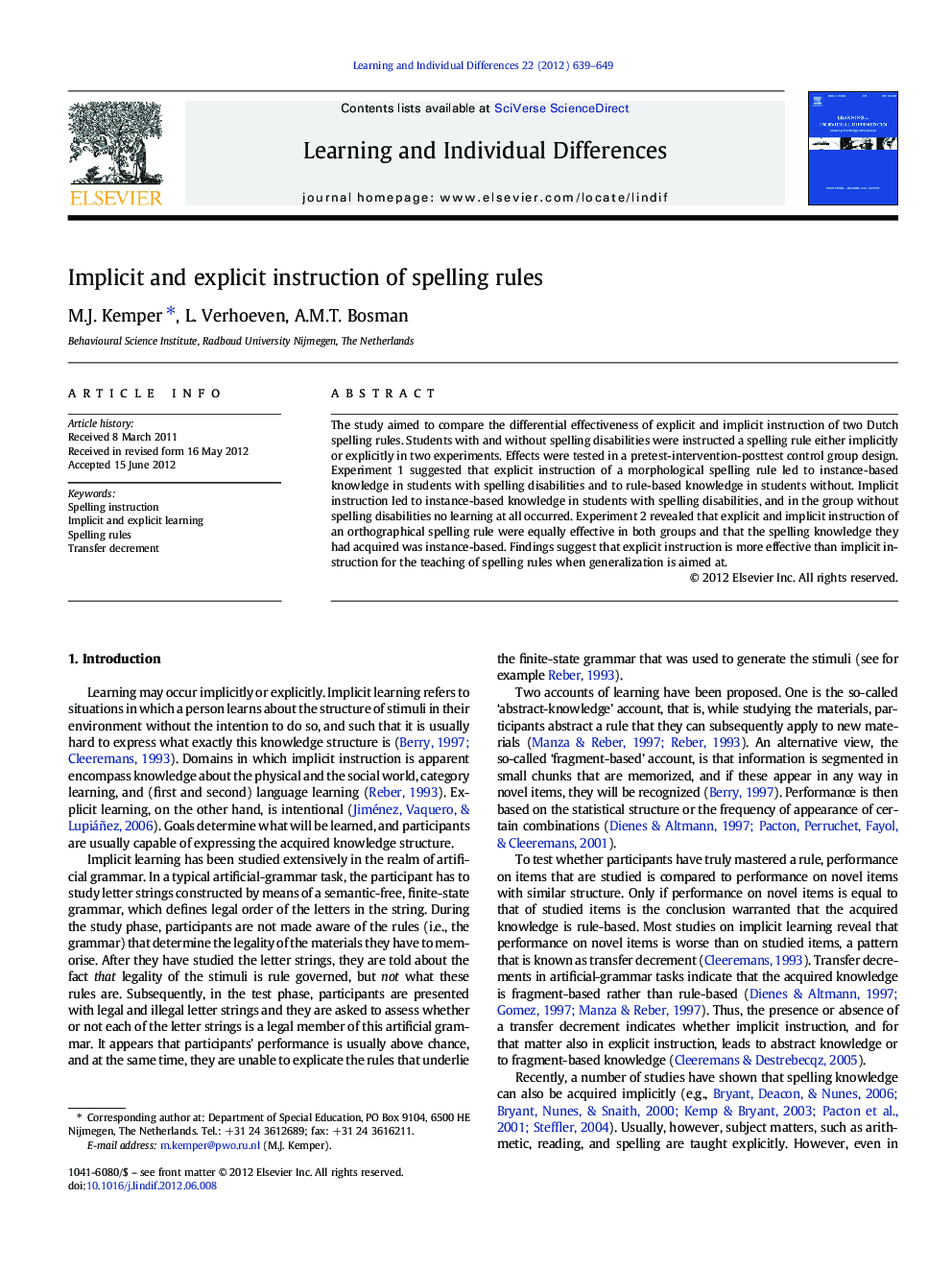| Article ID | Journal | Published Year | Pages | File Type |
|---|---|---|---|---|
| 364847 | Learning and Individual Differences | 2012 | 11 Pages |
The study aimed to compare the differential effectiveness of explicit and implicit instruction of two Dutch spelling rules. Students with and without spelling disabilities were instructed a spelling rule either implicitly or explicitly in two experiments. Effects were tested in a pretest-intervention-posttest control group design. Experiment 1 suggested that explicit instruction of a morphological spelling rule led to instance-based knowledge in students with spelling disabilities and to rule-based knowledge in students without. Implicit instruction led to instance-based knowledge in students with spelling disabilities, and in the group without spelling disabilities no learning at all occurred. Experiment 2 revealed that explicit and implicit instruction of an orthographical spelling rule were equally effective in both groups and that the spelling knowledge they had acquired was instance-based. Findings suggest that explicit instruction is more effective than implicit instruction for the teaching of spelling rules when generalization is aimed at.
► We compare the differential effectiveness of explicit and implicit instruction op spelling rules. ► We look at different groups (with and without spelling disabilities). ► We look at different kind of rules (morphological rule and orthographical rule). ► We look at different kinds of knowledge (instance-based or rule-based). ► Explicit instruction seems more effective than implicit instruction for teaching spelling rules.
